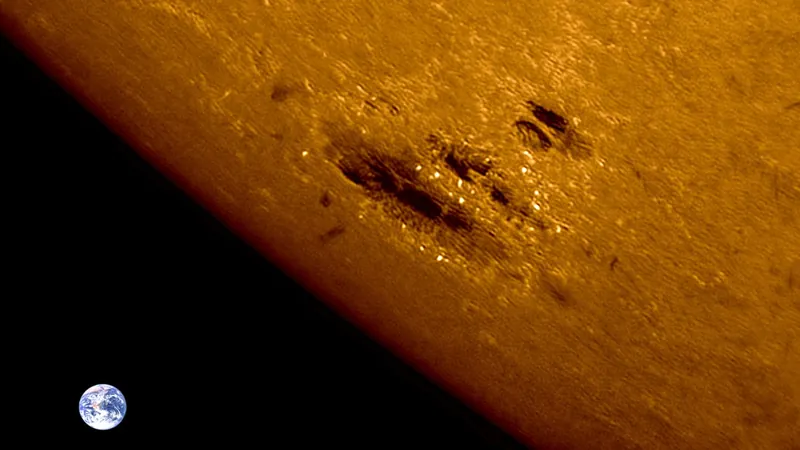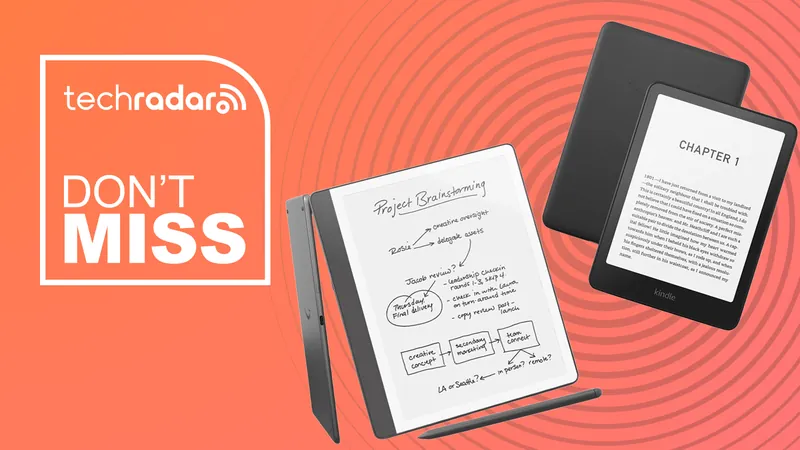
Unlocking the Celestial Secrets of Imperial China: A Journey Through Ancient Astronomical Archives
2025-06-04
Author: Yu
The Treasure Trove of Ancient Astronomy
Dive deep into the rich legacy of imperial China's astronomical archives, which span over 2,000 years from 221 BC to 1911 AD. These archives stand as monumental evidence of humanity’s exploration of the cosmos, offering invaluable insights into celestial events such as comets and the Earth’s rotation.
A Landmark Study Unveiled
A recent article in *Isis: the Journal of the History of Science Society* shines a light on how these extensive records were central to the development of astronomy in premodern China. Authored by Qiao Yang, the article reveals how historical consciousness and intergenerational collaboration shaped the practices of ancient astronomers.
The Dynastic Chronicles: A Goldmine of Knowledge
At the heart of this astronomical treasure trove are the official dynastic histories—24 in total—of which 18 include dedicated sections on astronomy. Yang’s analysis, titled "Astronomy as a Science in the Archive of Imperial China (221 BC-AD 1911)," emphasizes the meticulous preservation efforts undertaken by researchers to ensure that vital data would endure for future generations.
The Legacy of Qi Luqian: An Astronomer's Dedication
Focusing on Qi Luqian, an astronomer during the Mongol Yuan dynasty, the article reveals how he contributed to the refinement of the archives. As a key member of the Astrological Commission, Qi witnessed firsthand the painstaking efforts to sort through hundreds of volumes of raw material, ensuring that only the most accurate astronomical data was preserved.
Fear of Loss: The Fragile Nature of Ancient Texts
Qi's commitment to safeguarding these celestial records was partly driven by the vulnerabilities they faced—threatened by mold, pests, fire, and scribal errors. His approach to biographical writing broke conventional norms, incorporating technical details about astronomical instruments and significant astrological surveys. This innovative style found a place in the History of the Yuan Dynasty, cementing his work as a foundational reference for future scholarship.
Ancient Astronomers: Bridging Past and Present
Yang elucidates how Qi Luqian and his contemporaries often turned to their dynastic histories when confronted with astronomical puzzles. For instance, during the mystery of a solar eclipse that didn't occur in 1299, scholars sought patterns by consulting earlier records. This integration of historical and observational data not only clarified astronomical phenomena but also highlighted how historical precedence often took precedence over firsthand observations.
The Conclusion: A Collaborative Cosmos
The dynastic histories played an instrumental role in shaping the astronomical knowledge of imperial China, reflecting the intertwined nature of politics, culture, and science. As Yang concludes, the development of astronomy during this period was a "collaborative and cumulative" effort—an enduring testament to human curiosity and the relentless pursuit of knowledge, preserved through the ages.




 Brasil (PT)
Brasil (PT)
 Canada (EN)
Canada (EN)
 Chile (ES)
Chile (ES)
 Česko (CS)
Česko (CS)
 대한민국 (KO)
대한민국 (KO)
 España (ES)
España (ES)
 France (FR)
France (FR)
 Hong Kong (EN)
Hong Kong (EN)
 Italia (IT)
Italia (IT)
 日本 (JA)
日本 (JA)
 Magyarország (HU)
Magyarország (HU)
 Norge (NO)
Norge (NO)
 Polska (PL)
Polska (PL)
 Schweiz (DE)
Schweiz (DE)
 Singapore (EN)
Singapore (EN)
 Sverige (SV)
Sverige (SV)
 Suomi (FI)
Suomi (FI)
 Türkiye (TR)
Türkiye (TR)
 الإمارات العربية المتحدة (AR)
الإمارات العربية المتحدة (AR)